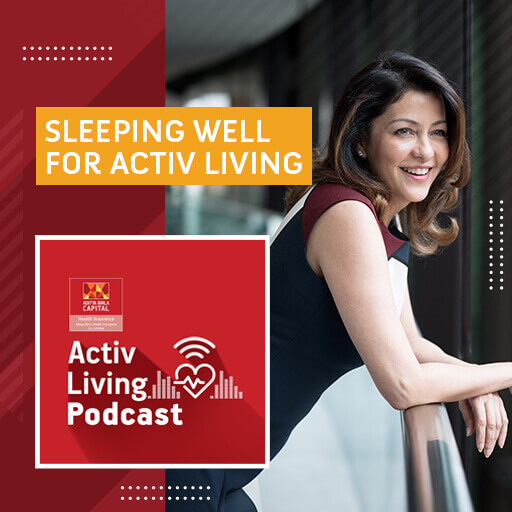
Obstructive sleeping disorders such as insomnia or sleep apnea are closely related to your heart health. Staying physically active, maintaining a balanced diet, and getting adequate sleep are the holy trilogy of leading a healthy standard of life.
What you need to know:
What is insomnia?

Clinical insomnia is associated with the risk of recurrent major adverse cardiovascular events. The defining characteristics of insomnia include impairment in sleep initiation, waking up in the night or early in the morning, or non-restorative sleep. This sleep disorder can affect your day-to-day routine and impacts your cognitive and emotional responses.
Symptoms of insomnia
The symptoms of this sleep disorder include fatigue, malaise, headaches, irritability, mood swings, reduced energy, and dwindling concentration and attention span. Inadequate sleep can reduce your body’s production of certain appetite-suppressing hormones that may lead to obesity. In addition, disruptions in your sleeping pattern bring about changes in your pancreatic cells that regulate glucose metabolism. Thus, from the deteriorated quality of sleep stems the issue of altered blood sugar levels or diabetes.
How is insomnia and heart disease interlinked?

Hypertension is closely related to your cardiovascular health. Sleep curtailment or any sleep disruption can cause your blood pressure to rise. Thus, insomnia is often associated with coronary heart disease and heart failure. An overlap between chronic insomnia and depression can also result in cardiovascular diseases. Lack of sleep increases calcium build-up in your heart’s arteries. This causes plaque, thus, putting you at a higher risk of heart diseases.
Sleep deprivation can also be one of the main reasons behind injuries and accidents. Loss of sleep can also affect your body’s inflammatory process. When you do not get enough sleep, blood levels of C-reactive protein, a marker of inflammation, increase. This can damage your blood vessel lining and result in atherosclerosis, wherein your blood vessels harden and narrow, heart attacks, and strokes.
How can you get a good night’s sleep?
One cannot stress enough the importance of getting a good night’s sleep. So, adhere to a proper sleep schedule.
- When you get your 7-8 hours of sleep, you wake up with a fresh zeal and energized body in the morning.
- Relax before you go to bed. Taking a warm bath, listening to soothing music, or reading can put you to sleep faster.
- Keep your laptop or mobile phone away 30 minutes or an hour before you decide to hit the hay. These devices emit a blue light that suppresses melatonin – the sleep hormone.
- Avoid eating or drinking anything before your bedtime. Refrain from consuming alcohol and caffeine, and avoid eating large portions for dinner. Sleep disorders are also related to ghrelin – the hunger hormone, and leptin – the fat-controlling hormone, which regulates your metabolism. Therefore, consuming sugary food right before you go to bed can spike energy levels, which can mess with your body clock.
- To stay fit, exercise during the day. This will enable you to stay active during the day. Avoid exercising a few hours before sleeping.
If you have tried these measures and continue to have sleeping problems, consult your health care professional. Find out more mindfulness and fitness-related information on the Activ Living Page.





 1800-270-7000
1800-270-7000











